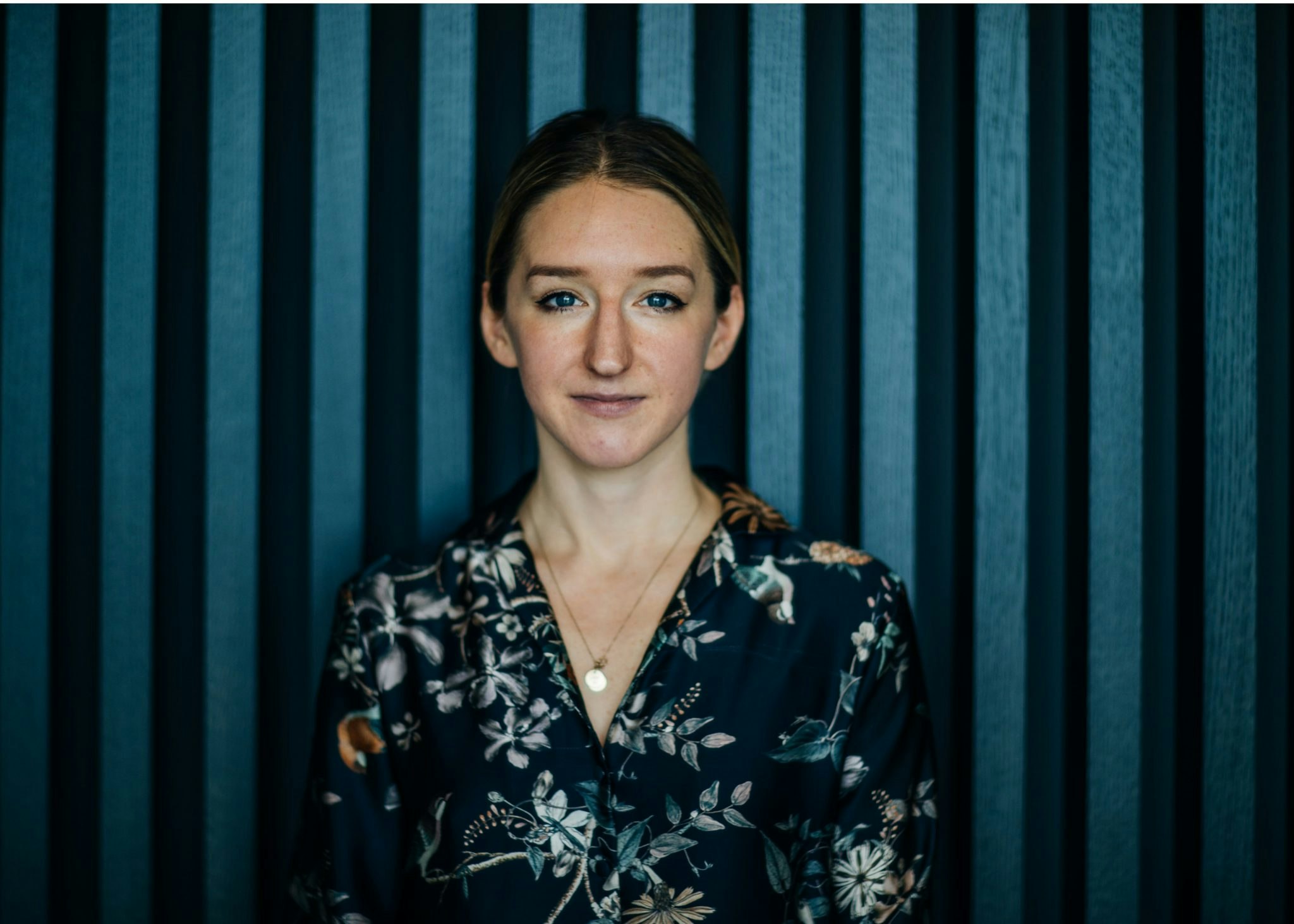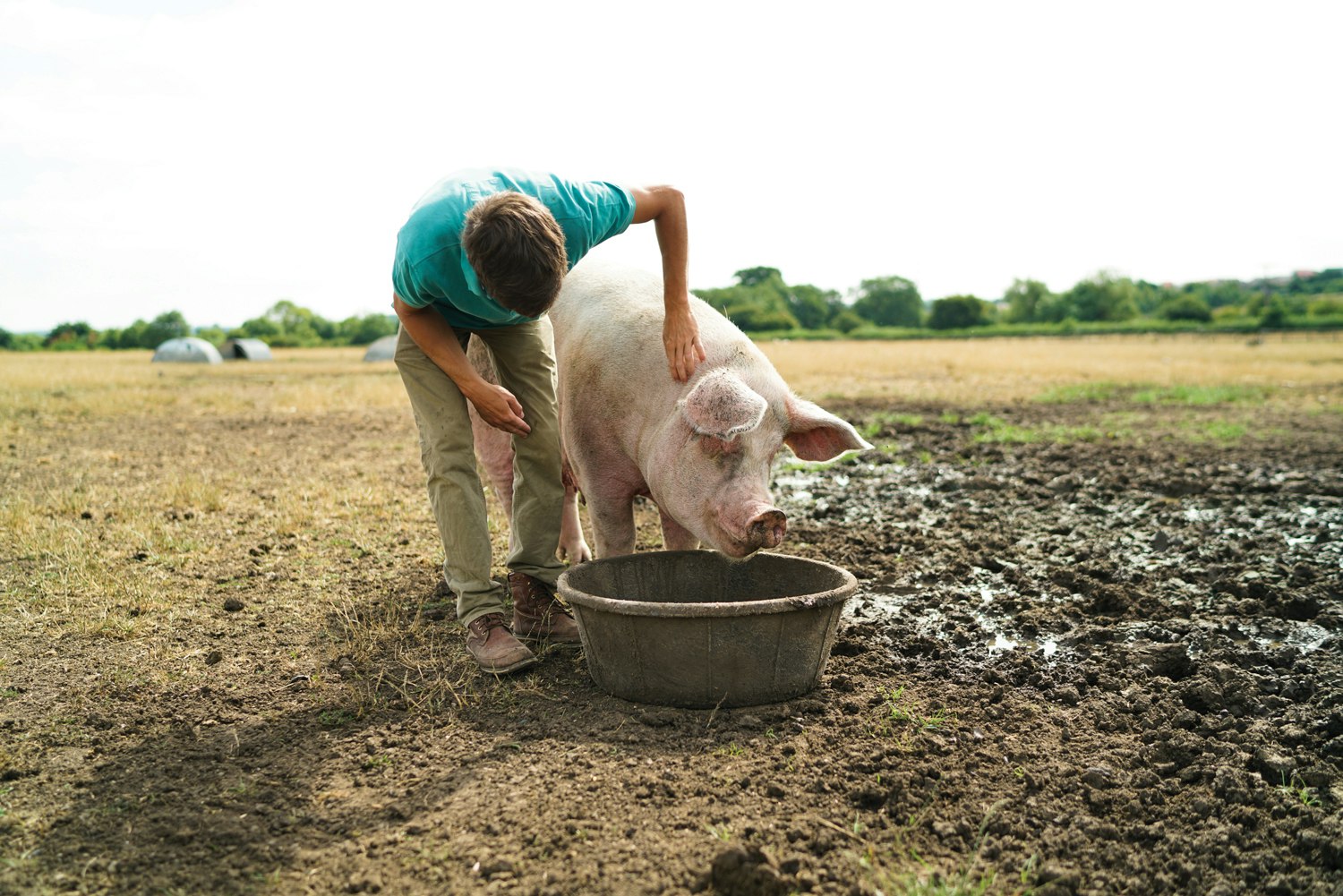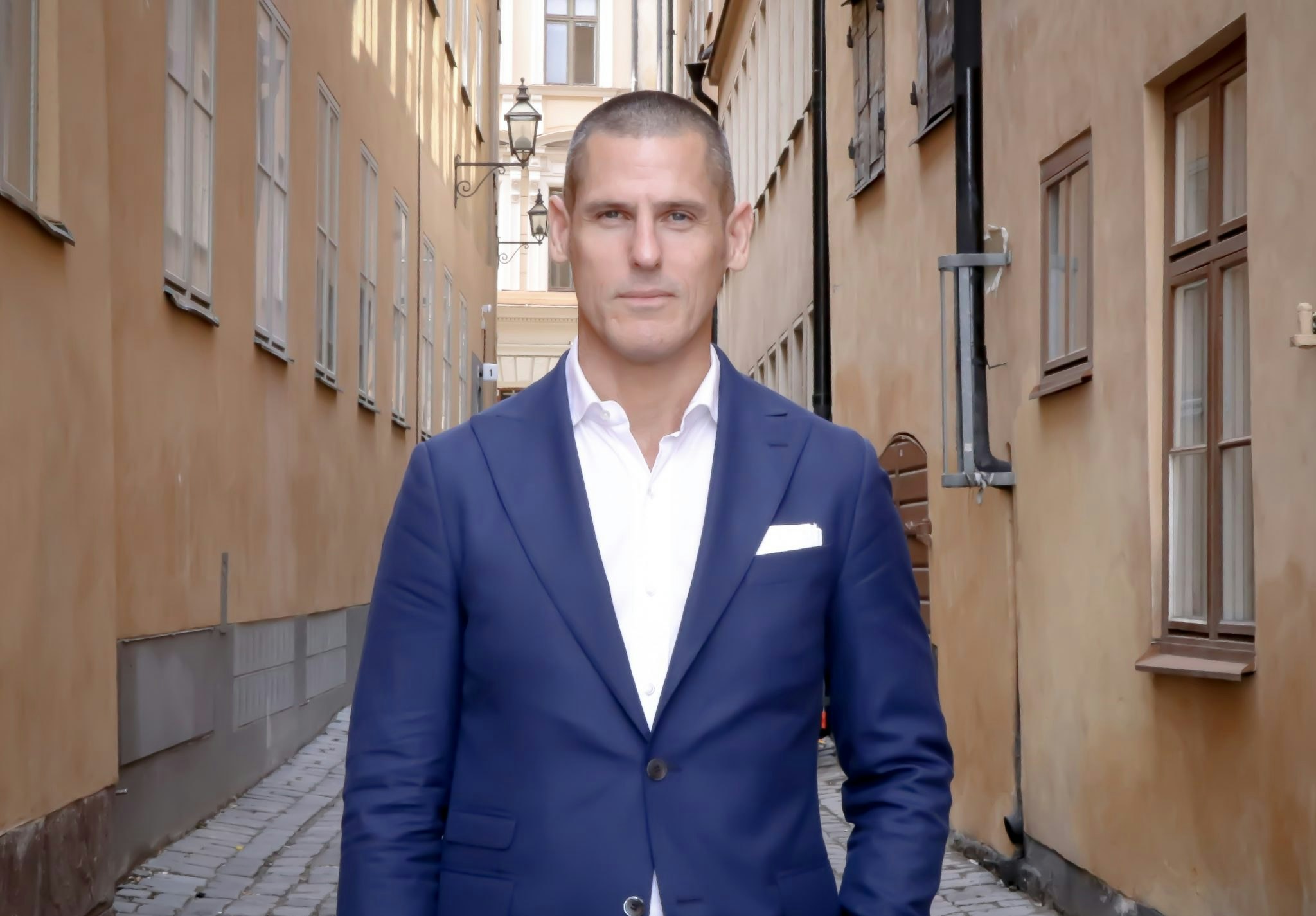When you’re deep in the weeds building a business, it can be hard to take a step back and figure out what a broader audience might find interesting about the company you’re creating. Chances are that recent rebrand is not going to be as fascinating to outsiders as it is to your team.
Equally, here at Sifted we think funding round announcements are fairly dull: the real story comes before and after. So what should startups be shouting about?
Sifted called up some top startup communications professionals from around Europe to ask their advice on how to figure out what makes a great story and keep finding ways to engage the press.

Ben Goldsmith
Ben Goldsmith is managing director of Goldsmith Communications, a London-based communications consultancy that works with venture capital firms, corporate innovators and technology companies.
Why is having a good brand story important?
There are two important things that a chief executive should understand: every company in the world has a brand story, whether they want one or not; also, companies are not in sole charge of their brand story, it has many authors.
A brand story isn’t “the story you tell”, it’s “the story your audiences know”. Even though certain large oil companies “tell” a story of renewable energy and their search for sustainable fuels, audiences “know” that these companies contribute immeasurably to pollution, and that petrol prices are going up.
So what does this mean? Companies need to influence as many elements of their brand story as is possible. If they do not craft their own narrative, someone else will do it for them.
Every company in the world has a brand story, whether they want one or not.
Name three startups in Europe who’ve told and controlled their ‘story’ well, or in an interesting/unusual way – and explain why.
Harking back the early days of fintech — Transferwise did a terrific job of building an impressive story. Fintech was capturing the imagination of the London tech community, and there was a vacuum to become the first ‘fintech darling’. Constant attention to detail, media engagements, and stunts (Halloween parade!) shot Transferwise to the top of the pile.
I have long been impressed by Stripe. It knows that its product is very interesting to specific groups of people, and that it isn’t terribly interesting to anyone else. So it goes deep: its developer engagement is superb. I was lucky enough to attend Stripe’s first London hackathon in early 2013. Stripe filled a room with app developers, all of whom walked out of the room with Stripe integrated into their app, and became huge advocates of Stripe at a grassroots level. The founders are used sparingly in the media too, giving them something akin to scarcity value.
Not a startup, but Atomico blew the roof off when it released its first State of European Tech report in 2015. The research is more than just a communications exercise, but it cements the investor’s place at the forefront of the industry’s consciousness every December. It’s one heck of a Christmas present.
What bonus piece of advice would you give to founders – novice or veteran – looking to get some more media coverage?
- Not everything your company does is ‘news’. In fact, not very much that a growing company does is inherently newsworthy.
Not very much that a growing company does is inherently newsworthy.
- You are a founder, you are likely an expert in something. You have experience and insight that few others have. Share it.
- Journalists are people.
Maud Camus
Maud Camus heads up PR and communications for Paris-based investor network The Family.
There are only so many times a company can tell its founding story. What else should founders/team members shout about?
Did you crack a policy or regulatory issue? Did you make mistakes that you were able to learn from? You have multiples stories to tell.
It’s not about just communicating financial milestones, but also the golden nuggets from your entrepreneurial journey: How did you penetrate the market? Did you crack a policy or regulatory issue? Did you make mistakes that you were able to learn from? What are the core values (with real examples and anecdotes) that guided you through your choices? Do you have exceptional profiles within your team? You have multiples stories to tell. But just like the founding story, don’t create fake adventures and anecdotes for the sake of it; take a step back and analyse what is really of interest for an external audience.
How should a company pick its spokespeople?
Naming a spokesperson is a way to help the story be told in a consistent and even way: “Communication is repetition”, as they say! A spokesperson should be able to convey the vision of the company. That’s why the chief executive tends to be the natural spokesperson.
But talking to media can be time-consuming. And, depending on their personality, it can be a lot to put on a founder’s shoulders, so when picking the spokesperson, cofounders should be clear on the expectations; talking to the media will always be more natural — or, less painful — for one of the cofounders.
As a founder, it’s OK to not be the expert in everything within your company.
As the startup grows and starts hiring senior or specialised people, it starts making sense for a company to multiply its spokespeople. As a founder, it’s OK to not be the expert in everything within your company. So, for example, your security expert should be your spokesperson for all security-related briefings, don’t take on too much of the responsibility just because you think you need to be everywhere.

If a startup has, fundamentally, quite a boring/technical/niche product, what’s your advice on finding stories that a non-specialist audience will be interested in?
It’s very rarely startups’ technical aspects that are really interesting. Most technical products are created to solve a wider issue. Founders need to find that social/economic or just broader issue that their product is tackling.
Looking at people’s problems is always a good start. Take Dropbox — it doesn’t talk to the public about its innovative software, but about how it’s ending the pain point of collaboration at scale and keeping teams in sync.
Founders should leverage their users and customers more — their customers are often better brand ambassadors than they are!
Also, founders should leverage their users and customers more — their customers are often better brand ambassadors than they are! After all, a product is what its users and customers do with it — go and get some inspiration by listening to your customers’ stories. They may use your product in unexpected ways and will have amazing stories that you can relay to the world.
Name three startups in Europe who’ve told and controlled their ‘story’ well, or in an interesting/unusual way – and explain why.
I am a big fan of Agricool, a French company which grows fruit and vegetables inside shipping containers. As sons of farmers, the cofounders didn’t feel they belonged to the “tech community”, and decided not to reinvent who they are. They’ve raised €33m, grown a ton and gained visibility, while their brand still embodies their core mission. If you go on their website and social media, you’ll see just how funky their story is. The result is that you get how genuine the brand is — and you end up wanting to be a part of their journey.
Vestpod, a UK-based online platform (both a school and a community) which helps women change their relationship to money, is a typical example of how a strong founding story can really resonate with the brand. The founder, Emilie Bellet, began her career in private equity, yet was once asked in a meeting with a financial adviser where her husband was. That was the shock that finally pushed her to launch a newsletter aiming to empower women and break the taboo around money. She’s since turned it into a brand that inspires a supportive community, and advises women on how to earn, save and invest more.

Fempo’s story is also an inspiring one. This company sells organic menstrual panties. But they barely mention that. What they talk about is how modern women can regain control of the situation: their approach is part of a larger movement aiming at educating women and giving them the information they need to understand their hormonal cycle and fully master this particularity of women’s bodies. Their brand story is all about words and expressions that the general public doesn’t usually hear: periods, blood, hormones, leakage… They turned it into a strength and succeeded in positioning the brand as a credible actor in the industry.
What bonus piece of advice would you give to founders – novice or veteran – looking to get some more media coverage?
It all boils down to the “Why?”. And a certain sense of humility. Acknowledge that at the end of the day, the vast majority of the people are not directly interested in your "amazing" product or service. On the contrary, they will give you credit because you are able to explain something that goes beyond your product and because you’re one of the happy few who knows how to translate it in an easy, non-complicated, and compelling way.
Acknowledge that at the end of the day, the vast majority of the people are not directly interested in your "amazing" product or service.
The founders we all like to listen to and that the media remember are the ones who are able to teach us what they know without sounding too technical or boring. Ultimately, you’ve founded a startup to solve a problem, so it’s on you to explain in an exciting way what your vision is about and what impact it has on customers’ lives, not just your latest product developments. So cut out the vanity content, and share more about what you’ve really discovered along the way.

Nicole Green
Nicole Green is cofounder of Catch, a London-based communications agency which works with startups.
Why is having a good brand story important?
There's a slightly overused quote from Maya Angelou which says: "People will forget what you said, people will forget what you did, but people will never forget how you made them feel.” This is absolutely true for brands as much as it is for people.
Lots of startups make the mistake of simply telling people what they ‘do’.
Lots of startups make the mistake of simply telling people what they ‘do’ and it’s relatively rare that this practical information is enough to capture the attention of your audience.
Consumers of all kinds, whether industry peers or the man or woman on the street want to be excited and inspired by stories. So you need to think about what your ‘reason for being’ is, your purpose in the world. It's unlikely your product or idea is going to be unique and so the story behind it, the brand narrative and how you tell it is one of your most powerful differentiators.
There are only so many times a company can tell its founding story. What else should founders and team members shout about?
This is one of the greatest challenges facing a startup. Unlike with bigger businesses, the ‘news pipeline’ can be a little light, and budgets won’t allow for standalone campaigns that allow you to ‘create news’.
You should be looking out for topical issues in the world which you can offer insight or an expert comment on.
Most of the time I recommend that startups try to avoid just talking about themselves and issuing too many press releases. Instead you should be looking out for topical issues in the world which you can offer insight or an expert comment on. Instead of pushing out dull information about your business, ‘newsjack’ breaking stories by offering an opinion or added value.
How should a company pick its spokespeople? Does it need to have any?
In short yes. Having a consistent, credible and memorable face for the business is crucial, both for building awareness, delivering that all important brand story and to build relationships with journalists. You need to pick this person carefully; be honest about who best represents the story you're trying to tell.
It's definitely worth investing in quality media training.
In an ideal world, a spokesperson will be able to offer unique and valuable insight on the industry he or she is working in, expertise on relevant issues and be able to do so confidently whilst staying 'on message'. Some businesses choose to have two spokespeople, for example, the chief executive of a health-tech startup might talk about the growth and vision of the business, whilst a medical expert might offer specialist insight on relevant health issues.
Finally, it's definitely worth investing in quality media training, both for speaking opportunities and media interviews.
Name three startups in Europe who’ve told and controlled their ‘story’ well, or in an interesting/unusual way – and explain why.
Digital bank Monzo has done a brilliant job at the comms generally. Today transparency and openness has an extremely high value — especially in the world of fintech. They have done this expertly. Their founders are front and centre of all communications, they've doubled down on honesty and they've got a clear brand vision. They've created a tribe of loyal followers and quite rightly.
Online supermarket Farmdrop has a great product which taps into a movement around local, ethical and organic shopping and it has taken a bold approach in terms of its message that it offers a 'better' way to shop. People know what Farmdrop stands for and whether it is for them or not. It takes confidence to take this approach and it has paid off for them. It does well from both a consumer and business-to-business perspective.

Femtech startup Elvie has done a fantastic job. From brand to messaging to their influencer strategy and the product itself, I think they're one to watch. They have an avid following and are tapping into a massive growth market. Very smart.
What bonus piece of advice would you give to founders – novice or veteran – looking to get some more media coverage?
Make sure you are reading and absorbing as much relevant news as possible so you can keep on top of opportunities as they break and offer journalists something useful.
Make a list of journalists who are writing on topics relevant to your business and focus on building relationships with them. This is crucial in the early days when your brand is unknown — but be respectful of a journalist’s time. Do your homework and only pitch them stories that are helpful or relevant.

Miguel Ruas
Miguel Ruas is founder of Doctor Spin, a Lisbon-based PR and communications agency which works with business community Startup Lisboa and many of its members.
How should a company pick its spokespeople?
It should be someone who is deeply informed about what is going on in the company but someone who can also relate to the public, who understands that there may be a need to “translate” technical information. An empathic and communicative person.
If a startup has, fundamentally, quite a boring/technical/niche product, what’s your advice on finding stories that a non-specialist audience will be interested in?
Every company plays a part in its industry. Each leader needs to create a story for the part they play. If you have a story, then your boring product becomes less boring.
We recently had a case where a client used aerospace technology to build a motor failure detector for light aircrafts. There is nothing sexy or easy about communicating this. However what if I tell you that this technology has the potential to save lives, concerning the number of deaths in light aircraft crashes in recent years, then suddenly I have a story to go on, and it suddenly becomes interesting.
Name three startups in Europe who’ve told and controlled their ‘story’ well, or in an interesting/unusual way – and explain why.
Experience recommendation app Fever, pre-owned fashion platform Vestiaire Collective and car-pooling company BlaBlaCar: they’re good at exploring different angles of their unique brands at the right times. For us, this is the secret to press relations – what stories should you sell to which influencers? And at what time?

Billy McCormac
Billy McCormac leads public affairs at Prime, a Stockholm-based communications agency.
How should a company pick its spokespeople?
Of course, many iconic founders are phenomenal speakers and extremely media savvy. It’s usually equal parts passion and natural talent. But don’t discount grit, determination and hard work. It takes time to hone your skills as a spokesperson. You have to put in the hours on camera and on stage. But it’s not for everyone.
A bad spokesperson (read: nervous, sweaty and uneasy) is far worse than no spokesperson at all.
A bad spokesperson (read: nervous, sweaty and uneasy) is far worse than no spokesperson at all. Play to your strengths and accept your weaknesses.
If a startup has, fundamentally, quite a boring/technical/niche product, what’s your advice on finding stories that a non-specialist audience will be interested in?
Stories should revolve around the community itself. I don’t want to know how it works. I want to see the changes it brings to people’s lives. If the story speaks to me, I’ll join.
Name some startups in Europe who’ve told and controlled their ‘story’ well, or in an interesting/unusual way – and explain why.
I’m interested in companies whose stories revolve around distancing themselves from the traditional industries they want to disrupt, like digital bank Revolut and insurance startup Hedvig. On the other hand, I also like edtech startup Sana Labs, whose approach is to collaborate with the industry it seeks to disrupt. Food waste app Karma and electric taxi startup Bzzt are two companies that have successfully built stories around improving our lives. Every story doesn’t have to be revolutionary. It just has to be clear.

What bonus piece of advice would you give to founders – novice or veteran – looking to get some more media coverage?
When it comes to communication, you should always keep three things in mind: make it stick, make it real and make it count. To make it stick, it should have cultural or contextual relevance, be newsworthy and should meet high standards of craft and execution. To make it real, it should have brand relevance, drive stakeholder engagement and offer a call to action or commitment. To make it count, it should have business relevance, sales integration and KPIs or other metrics.

Camille Charluet
Camille Charluet is communications manager at TQ, a coworking space in Amsterdam.
Why is having a good brand story important?
As a young startup, your brand story is your first real opportunity to stand out from the hundreds of other startups out there doing the same thing as you. It’s your chance to explain the ‘itch you’re scratching’ and the real impact you’re making. A solid brand story can humanise your company and convey your passion and purpose behind why you do what you do.
At the end of the day, people would much rather invest in authentic and passionate humans than money-hungry companies.
Remarkable stories are relatable and memorable — and at the end of the day, people would much rather invest in authentic and passionate humans than money-hungry companies. Being real is what makes people engage emotionally and grabs their attention -- and this translates to company success.
If a startup has, fundamentally, quite a boring/technical/niche product, what’s your advice on finding stories that a non-specialist audience will be interested in?
When I think of Buffer, I don’t think about a social media management tool — I think about how the company values transparency above all else and how all their employees work remotely. When I think about WeTransfer, I don’t think about a file transferring service, I think about their blog WePresent that shares stories about creativity. It really doesn’t matter if your product is ‘boring’ or ‘niche’. Talk about the hard decisions you made, the social impact you want to make, the tough lessons you learned, your predictions for your industry, your insights, and internal processes. These are the things people remember.

Cathy White
Cathy White is founder and director of CEW Communications, a London-based communications agency specialising in early-stage European tech companies and the ecosystem that supports them.
There are only so many times a company can tell its founding story. What else should founders and team members shout about?
It’s true. You can’t tell the same story and expect the same results. Never assume that because you gave Sifted one story, that Business Insider will take the same one. Adapt to fit the title — and if you can’t adapt it, then figure out what stories the publication likes to cover and see if you might have that story.
To put it bluntly, no-one wants to hear the story of the young all-white male founding team or the ex-(insert well-established corporate company of your choice) executive who has a tidy sum of money behind him and immediate connections to a heap of angel investors. Yawn.
What data do you have and what can it tell us?
Just as you need to tell investors what your unique selling point is, tell the media. But dive even deeper. What makes your particular team members unique? What makes your tech different? Why did you choose X Investor over Y investor? Why did you delay or speed up investment? If you didn’t get funding, tell us about your growth — how have you managed it? What about your sector — what’s going to happen in the next 5-10 years? What trends are you seeing? What data do you have and what can it tell us?
There are stories in everything — if you’re not sure what is or isn’t a story, get friends or advisors to tell you — or play a fun game of 20 questions and keep asking why. You need to step


